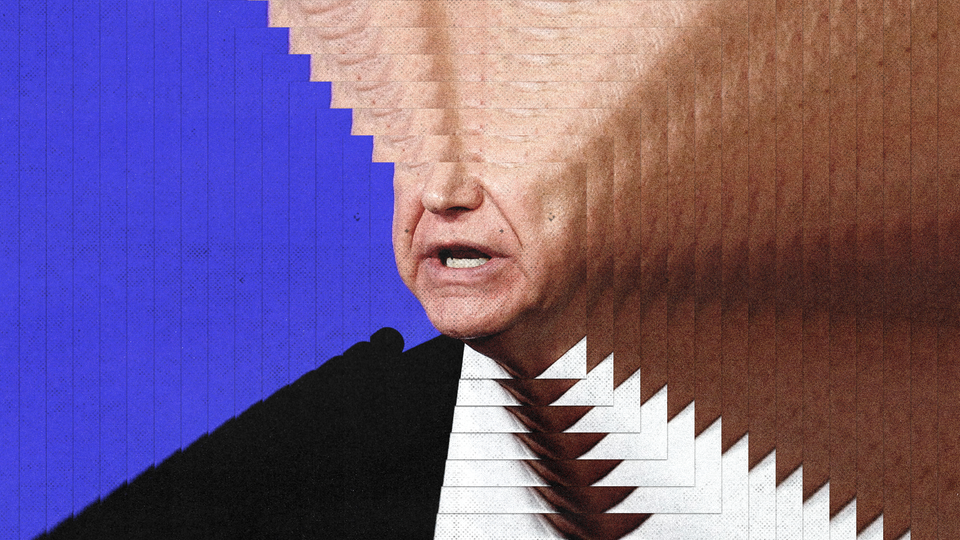You’re Killing Me, Walz
4 min read
About half an hour into last night’s vice-presidential debate, the CBS anchor Margaret Brennan turned to Tim Walz and asked a question that the Minnesota governor had to have known would come. “You said you were in Hong Kong during the deadly Tiananmen Square protests in the spring of 1989,” she said, noting that new reporting suggests Walz didn’t go to Asia until months later. “Can you explain that discrepancy?”
“Look,” Walz began, “I grew up in small, rural Nebraska, a town of 400, a town that you rode your bike with your buddies ’til the street lights come on.” He went on to explain how, as a teacher, he’d taken young people on educational visits to China. “I have poured my heart into my community. I’ve tried to do the best I can, but I’ve not been perfect, and I’m a knucklehead at times.”
Kamala Harris chose Walz, most observers have agreed, for his Everyman aesthetic and fluency in retail politics. And so far, the affable former high-school football coach and hype man for Menards has mostly received glowing reviews. He is much more adept than his Republican counterpart, J. D. Vance, at engaging with voters as a regular guy.
Which is why he should have had a better answer last night. And Walz’s failure to provide a coherent, succinct correction for an entirely predictable inquiry about one of his flubs suggests ill-preparedness for a spotlight that is only going to get brighter—and harsher—in the weeks to come.
Vance delivered a slick debate performance, though it would be a mistake to call it a “win” when he engaged in so much sinister revisionist history. In what would turn out to be the most striking moment of the night, Vance refused to admit that Donald Trump lost the 2020 election. The senator from Ohio also mischaracterized Trump’s attempts to repeal the Affordable Care Act, and Vance claimed, falsely, that he’s never supported a national abortion ban.
Walz, for his part, deployed a few effective jabs. “That’s a damning nonanswer,” he said simply, after Vance’s election-denial tap dancing. Another time, in an exchange about gun-violence prevention and mental-health care, Walz looked right at the camera and said, “Sometimes it just is the guns. It’s just the guns.”
But when you’re running a campaign against liars and bloviators, it becomes all the more important not to lie or bloviate. And the Walz fumble on China was sloppy enough—and early enough in the proceedings—to feel significant. After his first answer, CBS’s Brennan gave him another chance to clarify. “All I said on this was, I got there that summer—and misspoke on this,” Walz said, before taking a long pause. “So I was in Hong Kong and China during the democracy protests, and from that, I learned a lot of what needed to be in governance.”
The bungled response made the moment worse than it needed to be. And calling himself a “knucklehead” came off more cringeworthy than charming. But it wasn’t the first time Walz has been ensnared by his own nonanswers. In August, a video surfaced on social media in which Walz referred to weapons “that I carried in war” to explain his support for an assault-weapons ban. Walz served in the Army National Guard for 24 years, but was never deployed to a combat zone. Asked about it in a sit-down interview, Walz had an exchange with CNN’s Dana Bash that followed a now-familiar pattern.
“You said that you carried weapons in war, but you have never deployed, actually, in a war zone. A campaign official said that you misspoke. Did you?” Bash asked.
“I speak candidly. I wear my emotions on my sleeves, and I speak especially passionately about our children being shot in schools and around guns. So I think people know me. They know who I am,” Walz said.
Bash pressed. “Did you misspeak, as the campaign has said?”
“I said we were talking about—in this case, this was after a school shooting—the ideas of carrying these weapons of war,” Walz replied, “and my wife, the English teacher, told me my grammar is not always correct.”
Some Democrats dismiss these fumbles. “So he had a bad answer to something that happened 35 years ago. Next!” the political strategist James Carville told me. That’s right in the sense that Walz’s remarks seem more slippery than nefarious. He isn’t obfuscating, as Vance is, about the results of the 2020 election.
Still, Walz’s sloppiness highlights a bigger problem with media accessibility and versatility for the Harris campaign. Both Democratic principals have been reticent, seemingly reluctant to engage with the press; lately, Walz especially has been tightly bubble-wrapped. Unlike the Republican vice-presidential candidate, Walz does not regularly appear on cable-news programs or spar with reporters at campaign events. He is out of practice, and it shows.
This morning, perhaps as an attempt at post-debate cleanup, the Harris campaign announced that Walz is expanding his schedule. The governor will travel to several swing states in the next few weeks, and do a lot more media appearances, including a podcast, a late-night-TV hit, and two national-TV interviews. That will surely help Walz get in some badly needed reps. Perhaps he’s kicking himself that he didn’t before last night.



